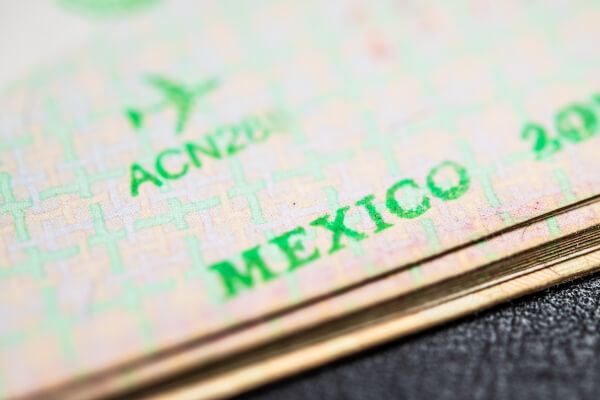Hiring Independent Contractors in Brazil: Legal Guide for 2026
Learn how to hire independent contractors in Brazil. Understand tax rules, compliance, contracts, and how to avoid misclassification risks.

The UAE can be an attractive place to start a business, especially if you’re looking to sell goods in the GCC (Gulf Cooperation Council) region and scale operations in the Middle East.
Dubai provides a wealth of commodities, convenient access to flights and travel, and lots of talent for hire. It’s no surprise that the emirate is fast becoming one of the most popular places to run a business.
This guide will take you through everything you need to know to open up a company in Dubai, and the steps for incorporating should you choose the region as your new venture’s home.
The Dubai Multi Commodities Centre (DMCC) is a free zone created by Dubai’s government which allows for easy global commodities trading. Situated in Jumeirah Lakes Towers (JLT), the DMCC is home to thousands of businesses spanning various industries and sectors.
As one of the largest free zones in the UAE, setting up a business in the DMCC can give you access to world-class infrastructure, various business and tax incentives, and a strategic location to operate your business.
There are many reasons to start operating your business out of the DMCC, but there are also some downsides to consider.
While Dubai typically offers a supportive business environment for expat entrepreneurs even outside of the free zone, there are some downsides to opening a business in the emirate.
Outside of the DMCC, you must have a local sponsor, and that sponsor must have a controlling share (51%) of the company.
Local sponsors can be either individuals or local UAE-based businesses, and their role is typically limited to administrative functions including helping with government procedures like visa acquisition and obtaining licenses and permits.
They must also sign all legal documents and official forms on behalf of the company.
Businesses may also require specific licenses, some of which carry capital requirements. You can check out the Invest in Dubai website to find out more about the process and licenses.
It’s also important to note that virtual businesses (those without a physical presence in Dubai) can’t register in Dubai. Any company undertaking commercial activities is required to have a physical location in the emirate.
In both the free zones and greater Dubai, you’ll need a residence visa to set up and operate your company.
When you start your company in a free zone, you’ll be allocated a certain number of residence visas based on the office space you lease. The amount of office space you lease or purchase will determine how many visas you can apply for, and the process of setting up a company makes you eligible for a visa.
In order to maintain your visa, if you’ve set up your business within the DMCC, you’ll pay a fee according to the residence visa package you’ve selected, plus you’ll need to put down a refundable deposit.
There is a caveat for businesses forming outside of the DMCC: your local sponsor, or the 51% local shareholder, must apply for your visa for you. The sponsor must also be in charge of visa applications for your employees, so they become a central figure for key administrative processes in your business.
In Dubai, the most common business types are limited liability companies (LLCs) which you can set up both in the free zones such as the DMCC and the mainland.
Outside of LLCs, the only types of business you can set up in Dubai are branches and subsidiaries of an existing local or foreign company, representative offices, or partnerships.
An LLC is a widely popular business structure in Dubai for US entrepreneurs taking on limited liability interested in starting a new venture in the mainland or one of the fee zones.
With an LLC in mainland Dubai, you’ll cede 51% of the company’s shares, and thus ownership of the company, to a local sponsor or a UAE national. If you operate in one of the free zones like the DMCC, you can fully own the company and operate in a tax-free environment.
A branch office is an easy way to set up and operate your business in Dubai without creating a separate legal entity. As an extension of your parent company, a branch office allows you to carry out business within the UAE.
You must appoint a local service agent or sponsor when dealing with the UAE government or regulatory authorities, but you won’t need to cede any shares in this scenario.
A subsidiary is a separate legal entity from a parent company, meaning you can fully own it if you set it up in a free zone. You can also establish a subsidiary as an LLC or a different business structure depending on your company goals.
A representative office allows you to establish a foothold in Dubai without carrying out all of your regular business activities. You can use this office to promote and market your parent company’s services.
As a partnership or joint venture, you can join forces with local companies or another foreign entity in either a free zone or the mainland. With two or more parties, you share the ownership of the company along with the risks.
If you’re looking to set up a business in the DMCC, the following step-by-step guide should help you navigate the process.
Many of these same steps also apply when setting up a business in the mainland.
In the online application, you’ll be asked to list three preferred names for your new business.
The DMCC will try to secure your first choice name, and will do the necessary research to make sure that the name isn’t already in use. If they find the name has previously been taken, they will secure your second or third choice name.
It’s important to note that your company’s name will always end in “DMCC”, and should you open a branch office the name will end in “DMCC Branch”.
If you are looking for a new name for your business generate some business name ideas using our Business Name Generator tool.
Next, you’ll need to submit the necessary pre-approval documents. For each proposed shareholder, manager, secretary, director, or legal representative, you’ll need the following documents for pre-approval:
In addition, you’ll also need a business plan if it’s required for the specific business activity. You can use our business plan template to include a business plan in your application.
If a consultant is acting on your behalf in Dubai, you’ll need a Consultant’s Appointment Letter and Power of Attorney.
There will be a fee for name registration, though this figure will depend on the services you offer.
The pre-approval process generally takes anywhere between 7 working days and one month.
After your documents have been pre-approved, you’ll need to submit additional documents for registration.
For each proposed shareholder, manager, secretary, director, or legal representative, you’ll need the following documents:
After you’ve submitted all of the necessary documents, the DMCC will issue you a Provisional Approval and Bank Letter.
Both Dubai and the DMCC have comprehensive online resources for expats seeking to open new businesses in the emirate.
The Government of Dubai lays out steps, costs, and processes for forming a new business in Dubai, and includes many guides and how-tos.
The DMCCalso provides step by step instructions for how to form a new company. You can choose to jump right to the company set up FAQs, or their guide on starting a company or, when you’re ready, do your business application online.
When you’re ready to take your business global, you need a payment solution that matches your international ambitions.
Wise offers a smart, cost-effective solution. Wise is not a bank, but a Money Services Business (MSB) provider and a smart alternative to banks. With a Wise Business account, you can easily send, receive, and hold business funds in multiple currencies, without paying monthly account fees. You can get local bank account details to receive payments in major currencies for a one-off fee and make sending money abroad hassle-free with access to 140+ countries.
Open a Wise Business account online
Some key features of Wise Business include:
| Read the guide on how to open a Wise Business account |
|---|
*Please see terms of use and product availability for your region or visit Wise fees and pricing for the most up to date pricing and fee information.
This publication is provided for general information purposes and does not constitute legal, tax or other professional advice from Wise Payments Limited or its subsidiaries and its affiliates, and it is not intended as a substitute for obtaining advice from a financial advisor or any other professional.
We make no representations, warranties or guarantees, whether expressed or implied, that the content in the publication is accurate, complete or up to date.

Learn how to hire independent contractors in Brazil. Understand tax rules, compliance, contracts, and how to avoid misclassification risks.

Learn how to hire and pay independent contractors in Mexico. This article also includes an FAQ and best practices about working with contractors in Mexico.

Learn how to navigate the overseas worker recruitment. Discover legal requirements, sourcing strategies, visa compliance, and tips for international hiring.

Paying overseas vendors is common, but the hidden costs of B2B cross-border payments aren’t. Learn how to simplify international business payments today.

B2B payment processing doesn’t have to be hard. Learn how growing businesses can simplify cross-border transactions, streamline invoicing and get paid faster.

Discover strategies to enhance B2B payment security, reduce fraud risk, and protect cash flow using secure digital payment methods and automated workflows.